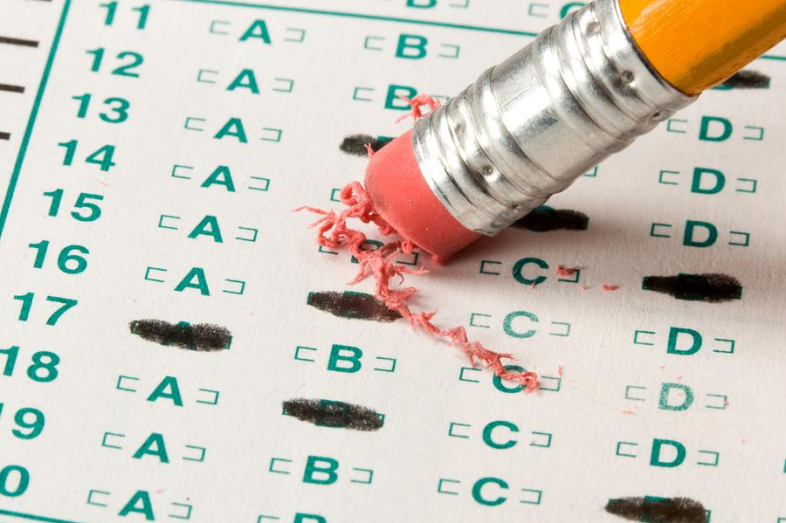

Wealthy students have long outpaced their disadvantaged peers in American schools. That disparity bears more weight than ever as standardized tests become one of the main measures for holding schools and teachers accountable.
Anya Kamenetz is NPR’s lead digital education reporter and the author of “The Test,” a book due out next year which examines the past, present and future of testing in American schools. At EWA’s November seminar on testing held at Stanford University, Kamenetz spoke with reporters about her work, and the impact of the pervasiveness of assessments in public education.
“We do seem very, very stuck on this notion that we should be holding our schools accountable on the outcome of standardized tests,” Kamenetz told the audience.
But those tests have limitations, she said, including the long-standing correlation between wealth and test scores. Educators and politicians now view this disparity, dubbed the “achievement gap,” as one of the most pressing problems in American schools. Most private schools don’t give state tests, she said, because they’re not required to administer them and don’t find them useful.
A few schools are using alternate ways to assess students, she said, including asking students to give presentations about their work and defend their work, as a graduate student would do with his or her thesis. Teachers ask well-designed questions that show whether the students understand the material.
In any case, she said, students and teachers should have a clear sense about how they’re performing. That doesn’t always happen with standardized tests.
Asked about her thoughts on the Common Core State Standards, Kamenetz said she thinks they’re a step forward, though the new corresponding tests aren’t much different from their predecessors.
“It’s good that we’re coming to a common understanding of what children need to know,” said Kamanetz, the author of two books on education.
She cautioned, however, the Common Core-based assessments are expected to result in many more failures than past tests.
Kamenetz distributed a handful of case studies to reporters and asked them to work in groups and discuss whether they would write stories based on the scenario, and if so, how they would approach them.
One situation involved a 19-year-old first-generation immigrant in Texas who told a reporter he and his brothers had been encouraged to drop out of school in the wake of a new policy that evaluated schools and administrators based on their test scores and graduation rates. The description was based on a real-life example of a school district that pushed out struggling students. A school counselor blew the whistle on the school and administrators ultimately went to jail.
At the EWA seminar, a group reporters said they’d consider using the student as an anecdote in a broader story about the implications of assessing schools based on statistics and speak with advocates for at-risk students. Another group decided they’d find out how the schools tracked dropout and graduation data and determine whether the students’ experience was common or one school or staff member violated the district’s policies.


